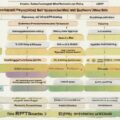Guilt is often seen as a negative emotion that holds us back. However, when experienced constructively, guilt can motivate positive change and personal growth.
What is guilt?
Guilt is the unpleasant feeling that arises when we believe we have done something wrong, failed in our duties, or hurt another person. It signals to our conscience that our behavior conflicts with our values.
Why do we feel guilty?
There are a few key reasons we may feel guilty:
- We hurt someone emotionally or physically
- We failed to meet responsibilities or let someone down
- We violated personal ethics or morals
- We feel shame about something we did or an aspect of ourselves
How guilt can be constructive
Although guilt feels bad, it serves an important purpose. Constructive guilt can:
- Prompt us to apologize and make amends for harm done
- Motivate better decision making in the future
- Inspire personal improvement and spiritual growth
- Deepen empathy, compassion, and connection with others
The upside of feeling guilty
When experienced mindfully, guilt provides opportunities such as:
- Self-reflection and increased self-awareness
- Strengthening personal values and integrity
- Making positive changes and doing better
- Taking responsibility for actions
- Considering the wellbeing and needs of others
Turning guilt into growth
If guilt is weighing you down, here are constructive ways to respond:
- Acknowledge the feeling without judgement
- Identify your unmet values or needs
- Apologize for harm done or make amends
- Forgive yourself and focus on doing better
- Use it as motivation for personal growth
- Cultivate compassion for yourself and others
FAQ
Is guilt always a bad thing?
No, guilt can serve a useful, constructive purpose when experienced mindfully. It signals misalignment with our values and prompts reconciliation.
What’s the difference between guilt and shame?
Guilt involves feeling bad about specific actions, while shame involves feeling bad about oneself as a person.
How can I cope with unhealthy guilt?
Unhealthy guilt that is excessive or misplaced can be transformed through self-forgiveness, self-compassion, addressing unmet needs, and focusing on values-based change.
When should I seek help with guilt?
Seek professional mental health support if guilt becomes excessive, unresolved, leads to depression or anxiety, or significantly disrupts daily functioning.
What are signs of a healthy response to guilt?
Healthy responses involve temporary guilt leading to self-reflection, making amends, positive change in alignment with values, and increased compassion for self and others.









